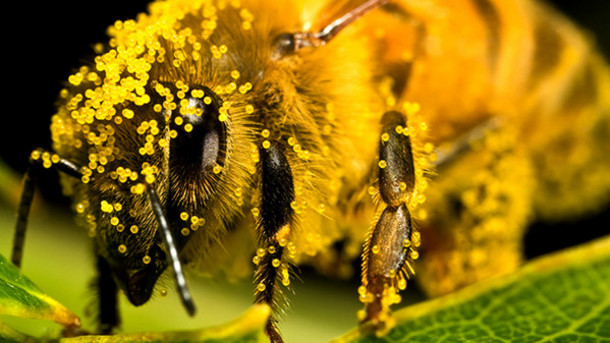Caring for your cat involves many factors, and their diet is one of the most critical. While commercial cat foods provide the basics, adding natural supplements like bee pollen can elevate your cat’s health and well-being. Bee pollen is packed with essential nutrients, antioxidants, and anti-inflammatory properties, benefiting both humans and animals. For cats, it can address issues like allergies, digestion, and low energy levels.
However, before introducing bee pollen to your cat’s diet, it’s essential to understand its benefits, potential risks, and the correct way to use it. Let’s explore why bee pollen could be a superfood for your feline friend, along with tips and precautions.
Even if your cat struggles with allergies, digestive issues, or simply low energy levels, bee pollen for cats is completely safe, and adding them to your cat’s diet could be the best natural solution that could do wonders.
What Does Research Say About Bee Pollen for Cats?
Bee pollen contains essential vitamins, minerals, amino acids, and enzymes. According to a study published in the Journal of Apicultural Research, bee pollen is a nutritional powerhouse that supports immune function reduces inflammation and improves overall health in animals. Additionally, veterinarians suggest that while bee pollen can be a valuable supplement, it must be introduced cautiously to avoid potential allergic reactions.
Sources:
- Schmidt, J.O., & Buchmann, S.L. (1992). The Nutritional Value of Bee-Collected Pollen. Journal of Apicultural Research.
- Dr. Jane Bicks, DVM, The Benefits of Bee Pollen in Pet Diets.
Here are some top benefits that will clarify why this superfood deserves a spot in your pet’s diet.
Top Benefits of Bee Pollen for Cats
1 – A Nutritional Powerhouse
Bee pollen contains essential nutrients, including vitamins, minerals, amino acids, and enzymes. These nutrients can help cats maintain their energy levels, complementing their regular diet. It’s a natural way to support overall health, especially for lethargic cats.

2 – Strengthening Their Immune System
Bee pollen’s antioxidants, along with antimicrobial and antiviral properties, strengthen your cat’s immune system. This reduces the likelihood of infections or colds, especially for older cats whose immunity may be declining.
3 – Improves Digestive Health
Digestive problems like constipation or diarrhea are common in cats. Bee pollen’s natural enzymes aid digestion, alleviating these issues. A study from Veterinary Medicine International highlighted that digestive enzymes in supplements improve nutrient absorption in pets.
4 – Restoring Skin Dullness
If your cat’s fur looks dull or their skin is dry, bee pollen’s fatty acids and antioxidants can help. These compounds hydrate the skin and improve the texture and sheen of your cat’s coat.
5 – Subsides Pain
Bee pollen’s anti-inflammatory properties can ease joint pain, particularly in older cats suffering from arthritis or mobility issues. This benefit helps improve their overall quality of life.
6 – Fights Obesity
Obesity can lead to conditions like diabetes and joint problems in cats. Bee pollen helps regulate appetite and supports fat metabolism, making it easier for cats to stay active and maintain a healthy weight.
7 – Fights Allergies
Bee pollen can desensitize your cat’s body to allergens over time, reducing symptoms like sneezing, itching, or watery eyes. It also helps prevent seasonal or environmental allergies, making it an excellent natural remedy for allergic cats.
Also read: How to Prevent Summer Acne?
8 – Helps With Difficulty In Breathing
If your cat suffers from asthma or other respiratory issues, bee pollen’s anti-inflammatory properties can enhance airflow and reduce symptoms. While not a cure, it may help minimize the frequency and severity of respiratory problems.
9 – Helps Your Cat Live Longer
The combination of essential vitamins, antioxidants, and enzymes in bee pollen supports organ function, immunity, and overall vitality. By improving your cat’s general health, bee pollen can contribute to a longer, happier life.
How to Use Bee Pollen for Cats Safely
Dosage Recommendations
- Start with a small dose (e.g., ¼ teaspoon) and gradually increase based on your cat’s size and tolerance.
- Consult your veterinarian for personalized advice, especially if your cat has allergies or pre-existing health conditions.
Tips for Introduction
- Mix bee pollen with wet food or sprinkle it over dry kibble for easy consumption.
- Monitor your cat for any adverse reactions, such as itching or digestive upset, during the initial introduction.
Precautions
- Avoid feeding bee pollen to cats with severe allergies to bee products.
- Store bee pollen in a cool, dry place to preserve its nutritional value.
Potential Risks of Bee Pollen for Cats
While bee pollen is generally safe, it’s essential to note the following:
- Allergic reactions: Cats sensitive to bee products may experience itching or swelling.
- Overconsumption: Excessive bee pollen can lead to digestive upset or weight gain.
Always seek veterinary guidance before adding any new supplement to your cat’s diet.
Why Consult a Veterinarian First?
Veterinarians are the best source of advice on your cat’s dietary needs. They can help determine whether bee pollen suits your cat’s health profile and suggest the correct dosage.
Conclusion:
Bee pollen is more than a nutritional supplement—it’s a superfood that can improve your cat’s overall health. From strengthening the immune system to managing obesity and allergies, its benefits are numerous. However, responsible usage is key. Always consult your veterinarian before introducing bee pollen to your cat’s diet, and follow recommended dosages.
With careful integration, bee pollen can be a valuable addition to your cat’s diet, promoting their health and longevity.
If you’ve experienced benefits from using bee pollen for your cat, feel free to share your insights in the comments!
Disclaimer
The information provided in this article is for educational and informational purposes only and should not be considered as professional veterinary advice. While we strive to provide accurate and up-to-date information, the content may not apply to every individual pet’s specific circumstances.
Before introducing bee pollen or any new supplement into your cat’s diet, consult with a licensed veterinarian. They can provide guidance tailored to your cat’s unique health needs, allergies, or medical conditions. The author and publisher are not responsible for any adverse effects or consequences resulting from the use of this information.
Always prioritize your pet’s health and well-being by seeking expert veterinary advice for their dietary and medical requirements.


